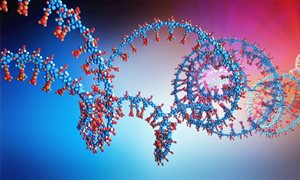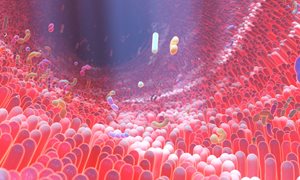 Radboudumc participates in the European Joint Programme on Rare Diseases (EJP-RD), which was recently approved by the European Commission. EJP-RD is an EU-wide and patient-centred initiative to foster rare disease research from bench to bedside and back. The programme, due to launch in January 2019, will receive 55 million EUR over 5 years to establish a comprehensive strategy covering research, data, tools and clinical aspects to increase the efficiency of results use, diagnosis, drug discovery, patient care and to empowering all stakeholders.
Radboudumc participates in the European Joint Programme on Rare Diseases (EJP-RD), which was recently approved by the European Commission. EJP-RD is an EU-wide and patient-centred initiative to foster rare disease research from bench to bedside and back. The programme, due to launch in January 2019, will receive 55 million EUR over 5 years to establish a comprehensive strategy covering research, data, tools and clinical aspects to increase the efficiency of results use, diagnosis, drug discovery, patient care and to empowering all stakeholders.
The EJP-RD program supports the research activities of the recently established European Reference Networks (ERNs) for rare diseases. EJP-RD is open to all rare disease investigators. As representatives of the ERNs, the following Radboudumc researchers are currently most tightly involved in the EJP-RD program:
- Nicoline Hoogerbrugge (ERN GENTURIS, ERN on genetic tumour risk syndromes)
- Leo Schultze Kool (VASCERN, ERN on multisystemic vascular diseases)
- Wout Feitz (ERN eUROGEN, ERN on urogenital diseases and conditions)
- Han Brunner (ERN ITHACA, ERN on congenital malformations and rare intellectual disability)
- Baziel van Engelen and Peter-Bram ’t Hoen (ERN EURO-NMD, ERN on neuromuscular diseases)
- Enhancing the FAIRness (Findability, Accessibility, Interoperability, Reproducibility) of rare disease data
- Increasing interoperability of patient registries
- The development of infrastructure, tools and services for the integrated analysis of molecular profiles at different levels (genomics, transcriptomics, proteomics, metabolomics)
- Training of rare disease researchers and outreach to rare disease patients, healthcare providers and other stakeholders
Related news items

Next Generation cytogenetics is on its way Does Optical Genome Mapping turn cytogenetics upside down?
7 July 2021 Dutch-French research shows that Optical Genome Mapping (OGM) detects abnormalities in chromosomes and DNA very quickly, effectively and accurately. go to page
Human microbiome could shed light on higher morbidity rate in minoritized populations The link between environmental inequities and disease may lie in the gut
15 June 2021 A study published in PNAS is the first to explicitly address the gut microbiome as a pathway to understanding how environmental inequities could lead to health disparities. go to page
European research project raises hopes in fight against rare diseases Solve-RD successfully established an innovative approach to jointly re-analyze genomic and phenotypic data from unsolved rare disease patients
1 June 2021 For the first time in Europe hundreds of rare disease experts team up to actively share and jointly analyze existing data from unsolved rare disease patients. go to page
Joining forces with patient communities to drive FAIR data
17 March 2021 Nawel van Lin created a new animation, which was presented during the event on Duchenne data sharing to spread awareness of the benefits of FAIR. go to page
Radboudumc scientists in international list of most cited scientists
18 November 2020The list of the 1 percent most cited scientists of the past ten years contains seventeen scientists who are affiliated with Radboudumc or Radboud University. The list was published by Clarivate Analytics.
go to page
